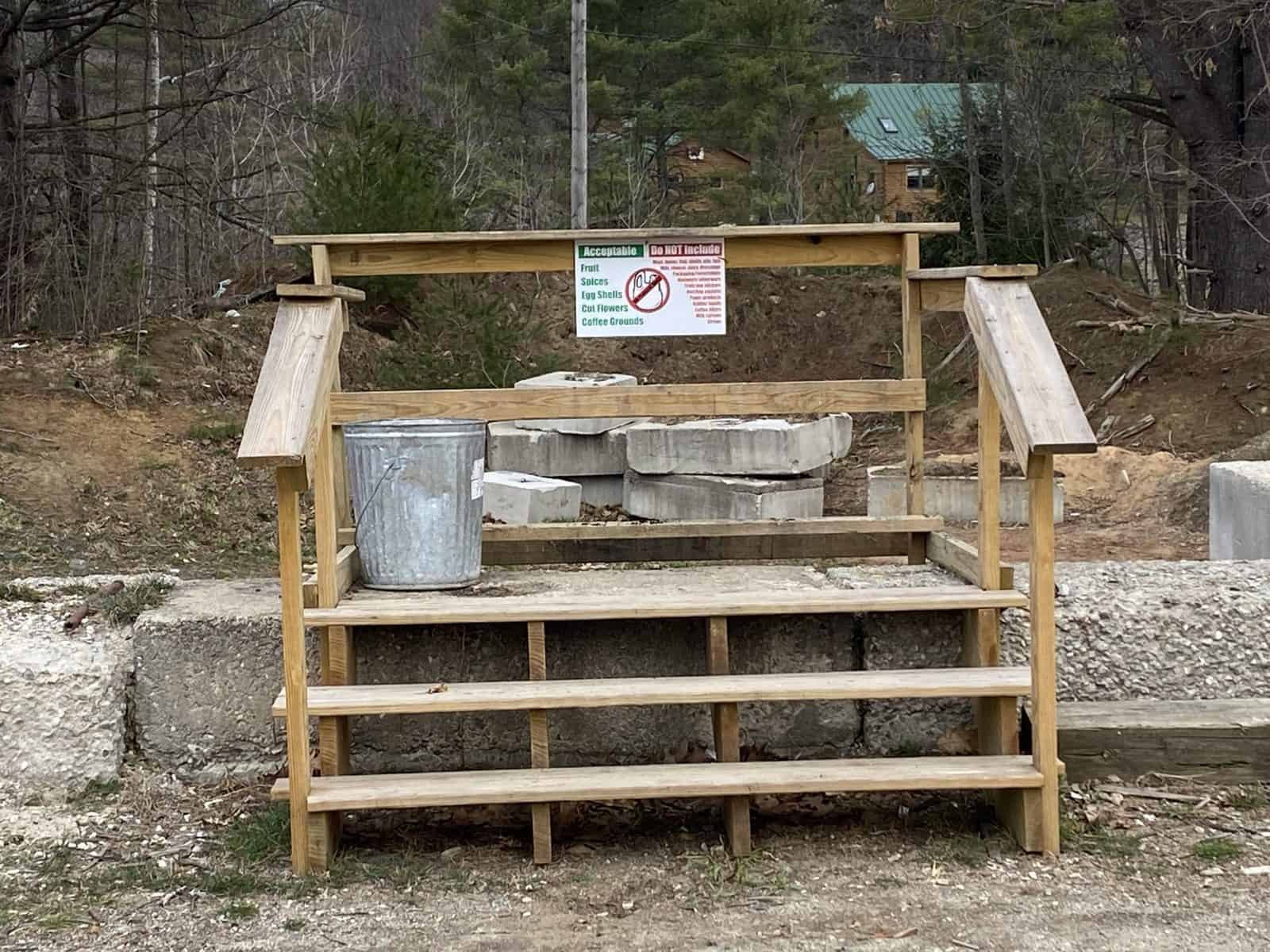
CAVENDISH, Vt. – When the Vermont legislature banned food scraps from the trash and mandated that all Vermonters compost food scraps, the Town of Cavendish engaged the services of a company to haul away those scraps each week. That quickly became hugely expensive, so the town decided to try a different route. For several months now the Cavendish transfer station has been composting on site. That saves both the carbon cost and dollar cost of haulage, making composting more economical and environmentally sustainable. Any Cavendish resident with access to the transfer station can use the new composting section for no extra charge.
What must stay out of the trash and instead be composted includes those parts of food items that are typically discarded rather than eaten, such as peels, rinds, cores, eggshells, seeds, pits, bones, coffee grounds and paper filters, loose-leaf tea and paper tea bags, and fats, oils, and grease. It also includes food plate scraps or leftovers and any food that went bad. And not just food must be composted, but if it was once part of something alive, like a plant or an animal, it does not belong in the landfill. So, grass clippings and any other yard debris must stay out of the trash and can be put into the compost.
Eventually the newly created compost will be available to Cavendish residents free of charge, although it will take time for the scraps and waste to become useable compost. Meanwhile, the town employees ask that people be more careful in what they throw into the compost pile. Plastic bags are not compostable. Dump compostables into the pile and throw the plastic into the trash. Some plastic food containers and utensils may be recyclable, but they are not compostable, even if the manufacturer says they are. Food scraps will compost in a few months, the containers and utensils will take many years if at all to compost. If they are clean, put them in recycling.
For those people who have a yard where they can set up a compost pile or bin, there’s no reason to bring that food and yard waste to the transfer station. Instead, create your own compost. It’s usable to enrich the soil of lawns, gardens, and potted plants. For information on how to make your own compost, or about any aspect of food waste disposal, go to www.okemovalley.tv/ccca-composting-workshop-2015 or to www.dec.vermont.gov/waste-management/solid/materials-mgmt/organic-materials.
For more information about the Cavendish transfer station, please call the Cavendish Town Office at 802-226-7291.